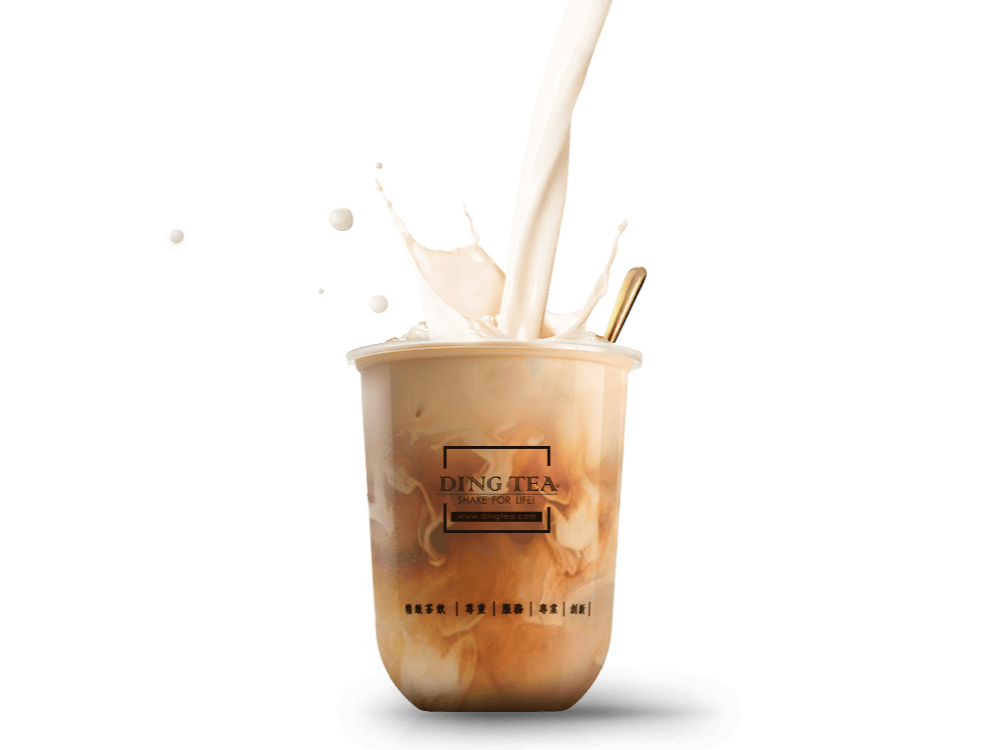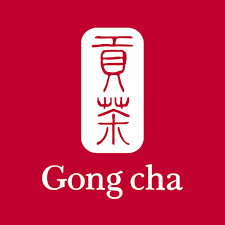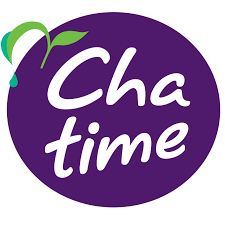Ding Tea Franchise in 2025: Costs, Fee & FDD
Discover whether Ding Tea is the right investment for you. Explore the brand’s growth, market potential, and key pros and cons for franchisees. Click here to learn more about this popular bubble tea franchise opportunity!

Table of Contents:
Ding Tea is a Taiwanese bubble tea franchise that has made waves in the global tea industry since its inception. Founded by Mr. Xu Wei-Xiang, the company quickly positioned itself as a leader in the rapidly growing bubble tea market, focusing on quality, consistency, and innovation. With its roots deeply connected to the rich tea culture of Taiwan, Ding Tea stands out for combining traditional tea-making techniques with a modern twist, which has helped it attract a diverse clientele.
At the heart of Ding Tea’s success is its signature bubble tea, with chewy tapioca pearls, blended teas, and fruit-infused drinks as the main offerings. Beyond the classic bubble tea, the franchise also offers milk teas, fruit teas, and seasonal specials. They even provide customizable drink options, allowing customers to adjust sweetness and ice levels. This flexibility makes Ding Tea beverage franchise highly appealing to younger audiences, including millennials and Gen Z, who value personalization. The core market consists of tea lovers, students, and professionals who seek out trendy, refreshing beverages.
Ding Tea’s global presence is impressive, with over 650 locations spread across countries like the United States, Taiwan, Japan, and several others. Its success in these regions has been driven by its ability to blend authentic tea flavors with local tastes, helping the brand establish a loyal customer base. On an average day, a typical Ding Tea location serves hundreds of customers, with some of the busiest locations seeing even more traffic. The franchise continues to grow, expanding into new markets as demand for bubble tea rises worldwide.
As for franchise support, Ding Tea offers a comprehensive system designed to guide franchisees through every step of the process. This includes initial training programs on tea preparation, customer service, and operational management. Franchisees receive ongoing support, with marketing materials, product development updates, and access to a network of other owners to share best practices. These programs ensure consistency in quality across all locations and allow new franchisees to hit the ground running.
Ding Tea Franchise Insights
- The franchise’s success lies in its highly customizable drinks, allowing customers to choose the sweetness, ice levels, and toppings, making it a hit among younger consumers who prefer personalization.
- Some of the busiest Ding Tea locations can serve hundreds of customers daily, indicating the high demand and strong customer loyalty the brand enjoys.
- Ding Tea is actively expanding into new markets, especially in North America and Southeast Asia, meaning new franchisees can benefit from entering fast-growing regions with established brand recognition.
- Ding Tea boasts an impressive year-over-year unit growth rate of 18%, significantly outpacing the overall bubble tea industry, which has seen stagnant growth at 0%. This rapid expansion highlights Ding Tea’s strong brand appeal and growing demand in key markets.
Ding Tea Franchise Key indicators
Growth YOY (%)
18%
vs industry 0%
Total U.S. Franchised Units
112
3-Year Failure Rate
8%
vs industry 10%
Total Investment
$195K-$324K
How much does it cost to open a Ding Tea franchise?
Understanding the potential investment size and capital requirements is crucial when considering opening a Ding Tea franchise. Ding Tea franchise cost, including initial franchise fees, equipment costs, and ongoing operational expenses, impact the feasibility and profitability of the venture. Thoroughly evaluating these factors ensures that potential franchisees are prepared for the financial responsibilities and can make informed decisions about their ability to sustain and grow the business, ultimately contributing to long-term success.
Min & Max Investment
Opening a Ding Tea franchise involves several key costs, which are outlined in Item 7 of the Franchise Disclosure Document (FDD). You can see a breakdown of the costs to open a Ding Tea below from the most recent Item 7 below:
| Type of Expenditure | Minimum Investment | Maximum Investment |
|---|---|---|
| Franchise Fee | $30,000 | $30,000 |
| Design and Floor Plan Fee | $500 | $500 |
| Refundable Security Deposit | $10,000 | $10,000 |
| Six-month Service Fees Prepayment | $3,000 | $3,000 |
| Related Personnel Cost for Initial Training | $2,500 | $5,000 |
| Equipment | $10,000 | $10,000 |
| Utensils | $5,000 | $5,000 |
| Rent for the Tea Shop | $2,800 | $5,500 |
| Rental for Warehouse | $2,000 | $3,000 |
| Renovation | $50,000 | $100,000 |
| Opening Inventory | $25,000 | $30,000 |
| Licenses, Permits, Fees, and Deposit | $1,800 | $3,500 |
| Point of Sale System | $1,850 | $2,000 |
| Office Equipment & Supplies | $120 | $500 |
| Uniforms | $670 | $670 |
| Insurance | $4,500 | $15,000 |
| Advertisement | $500 | $500 |
| Additional Funds (3 months) | $45,000 | $100,000 |
| Total Cost | $195,240 | $324,170 |
Item 7 in the Franchise Disclosure Document (FDD) is the “Estimated Initial Investment” section. It outlines the total costs a franchisee can expect to incur when starting a franchise, including the initial franchise fee, equipment, inventory, real estate, and other startup expenses. This section is crucial because it provides potential franchisees with a detailed understanding of the financial commitment required, helping them assess affordability and plan their investment strategy effectively.
Required Capital
For Ding Tea, or similar bubble tea franchises, the required capital, liquid assets, and net worth typically fall within these ranges:
- Required Capital/Total Investment The total investment required to open a Ding Tea franchise is usually estimated between $195,000 and $324,000. This includes costs for the franchise fee, equipment, inventory, and initial setup. Assuming that you will finance your franchise investment, you should plan to have 20% of the total investment amount in the form of equity (cash) for the investment.
- Liquid Assets While specific figures for Ding Tea may not be publicly available, most similar bubble tea franchises generally require franchisees to have at least $50,000 to $100,000 in liquid assets. This ensures the ability to cover initial and ongoing operational expenses.
- Net Worth The required net worth to open a bubble tea franchise like Ding Tea can vary but is often estimated to be around $200,000 to $500,000, depending on the location and scale of the franchise operation.
These figures provide a general idea based on industry standards, though it’s always recommended to directly consult with the franchisor for exact requirements.
How much does a Ding Tea franchise owner make?
Calculating the salary of a Ding Tea franchise owner involves analyzing gross sales to determine total revenue, assessing operational efficiency to understand profit margins, and accounting for franchisor fees and additional expenses such as rent, utilities, and payroll. Effective management of these factors can significantly impact the profitability and financial success of a Ding Tea franchise owner. This comprehensive financial analysis helps estimate net profits, from which the owner’s salary can be derived. A clear understanding of these factors ensures accurate salary projections and financial planning for sustainable business operations.
Ding Tea Revenue & Gross Sales
While specific revenue figures for Ding Tea franchises are not publicly disclosed, the franchise is known for its steady financial performance due to the growing popularity of bubble tea and its customizable drink options. Typically, beverage franchises like Ding Tea can achieve strong sales, especially in locations with high foot traffic and a younger demographic. By maintaining consistent quality and leveraging the brand’s global recognition, franchisees have the potential to generate solid revenue and achieve favorable returns on their investment.
Which key factors impact the average revenue performance of Ding Tea franchisees?
The performance of Ding Tea’s U.S. franchisee median gross sales over the most recent years was likely influenced by several key factors. The growing demand for bubble tea, especially among younger consumers, has played a significant role in driving sales. Additionally, Ding Tea’s adaptability to trends, such as offering customizable drinks and introducing seasonal flavors, has helped maintain customer engagement. The expansion of locations in high-traffic areas and a focus on delivery services through apps like DoorDash and UberEats have also contributed to increased revenue. Finally, the overall economic recovery and consumers’ return to dining out after pandemic-related restrictions may have boosted sales compared to the previous year.
Ding Tea Franchise Operational Costs
If you were to open a Ding Tea franchise, key ongoing operational costs to consider would include:
- Ingredient Costs Bubble tea ingredients such as tea leaves, tapioca pearls, fresh fruits, and milk are a significant portion of ongoing expenses. Ensuring a steady supply of high-quality ingredients is crucial for maintaining product consistency.
- Staffing and Labor Employee wages, benefits, and training will make up a large part of your operational expenses, especially since consistent, quality service is vital for customer retention.
- Utilities Given the equipment used for brewing tea, refrigeration, and lighting, utility costs can be notable, especially in high-traffic locations.
- Lease or Rent The location of your store is critical to success, and rent or lease payments in prime areas could be a significant recurring cost.
- Marketing and Local Promotions While corporate might support some national marketing efforts, you’ll still need to budget for local promotions and customer acquisition strategies to keep traffic high.
These costs can vary depending on your location and scale but are essential to managing the franchise effectively.
Ding Tea Franchise Fees
When considering the ongoing operational fees for opening a Ding Tea franchise, there are several key costs to keep in mind. Here’s a breakdown of the relevant ongoing fees:
- Service Fees $500 per month, calculated from the 8th month of your Tea Shop’s opening. Payments are made every six months, with the first payment due before opening.
- Marketing Fund Contributions A percentage of gross monthly sales, estimated to be approximately 3%. This goes towards the brand’s national marketing efforts.
- Additional Fees There might be other fees depending on specific franchise agreements or additional services required to operate your Tea Shop.
These fees help cover support services, marketing, and operational assistance provided by the franchisor, contributing to the success of your business.
Ding Tea Franchise Earnings
While specific earnings data for Ding Tea franchises is not publicly available, we can offer an informed overview based on industry trends and franchise attributes. Ding Tea, with its strong global brand and customizable drink options, presents solid revenue potential in the fast-growing bubble tea market. Key factors such as store location, customer demographics, and effective management are critical in determining financial success.
Industry benchmarks for similar beverage franchises suggest that gross sales can vary, with well-located and efficiently operated shops reaching impressive revenue numbers. Franchisees should take into account the initial investment, as well as ongoing operational costs, when forecasting potential earnings. Ding Tea’s comprehensive franchise support and training programs give franchisees the tools to optimize their operations and achieve profitability.
Prospective franchisees are encouraged to conduct market research and evaluate variables like local competition and customer preferences. By leveraging the brand’s global popularity and maintaining high operational standards, a Ding Tea franchise could become a profitable venture, similar to other successful beverage franchises. Speaking with existing franchisees and consulting financial experts can provide further insight into realistic earnings expectations.
How to Open a Ding Tea Franchise
To become a Ding Tea franchisee, there is a well-structured process designed to guide you from the initial inquiry to the start of operations. Here’s an overview of the typical steps involved:
- Initial Inquiry You or your franchise specialist submits an initial inquiry basic information about your interest and background. You should also conduct thorough research on the franchise, including seeing all of the information available on the Vetted Biz franchise intelligence platform, including access to the most recent Franchise Disclosure Document (FDD).
- Franchise Application After your inquiry, you will receive an official franchise application. This form requires more detailed information, including your business experience, financial situation, and why you are interested in becoming a Ding Tea franchisee.
- Franchisee Evaluation The franchisor will evaluate your application and determine if you meet their requirements for financial stability, business experience, and market potential. This is also when they’ll assess your preferred location.
- Discovery Day If you’re moving forward, you’ll likely attend a Discovery Day at Ding Tea’s headquarters. This is an opportunity to meet the corporate team, learn more about the business model, and ask in-depth questions before signing any agreements.
- Franchise Agreement Signing After Discovery Day, and if both parties agree to move forward, you’ll sign the official franchise agreement. This finalizes your commitment and provides you with the rights to open a Ding Tea franchise.
- Site Selection & Lease Negotiation Once the agreement is signed, you will work with Ding Tea’s team to identify the best location for your franchise. This includes researching market demographics and negotiating lease terms for your shop.
- Build-Out & Setup After securing the site, the next step involves the build-out and interior setup of your store. You’ll work with approved vendors for construction, equipment installation, and branding to ensure your store meets Ding Tea’s design standards.
- Training Program During the build-out phase, you and your staff will participate in Ding Tea’s comprehensive training program. This includes learning about tea preparation, customer service, operations management, and marketing strategies.
- Grand Opening Once your location is ready and all employees are trained, you’ll schedule a grand opening event, with support from Ding Tea’s marketing team to drive initial traffic.
- Ongoing Operations After the grand opening, you’ll begin daily operations as an official Ding Tea franchisee, with continued support from the franchisor through marketing, supply chain management, and regular check-ins to ensure success.
Pros & Cons
Pros
Customizable Menu: The flexible drink options, from bubble teas to fruit teas, cater to diverse tastes, particularly appealing to younger demographics who love personalization.
Growing Market: The bubble tea market is expanding rapidly, especially in North America, meaning there is strong potential for growth in the coming years.
Lower Initial Investment: Compared to other beverage franchises, Ding Tea’s franchise fee and total investment can be more affordable, making it accessible for first-time franchisees.
Cons
Competitive Market: The bubble tea market is becoming increasingly saturated, with many competitors entering the space, making it harder to stand out in some locations.
Limited Menu Expansion: While Ding Tea offers various tea-based drinks, the menu may not be as broad as other food and beverage franchises, which could limit customer reach in some markets.
Location Sensitivity: Success depends heavily on finding the right high-traffic location with a younger demographic that aligns with the bubble tea trend.
Operational Complexity: Running a tea shop involves handling a variety of ingredients, from fresh fruits to tapioca pearls, which can add complexity to inventory and daily operations.




